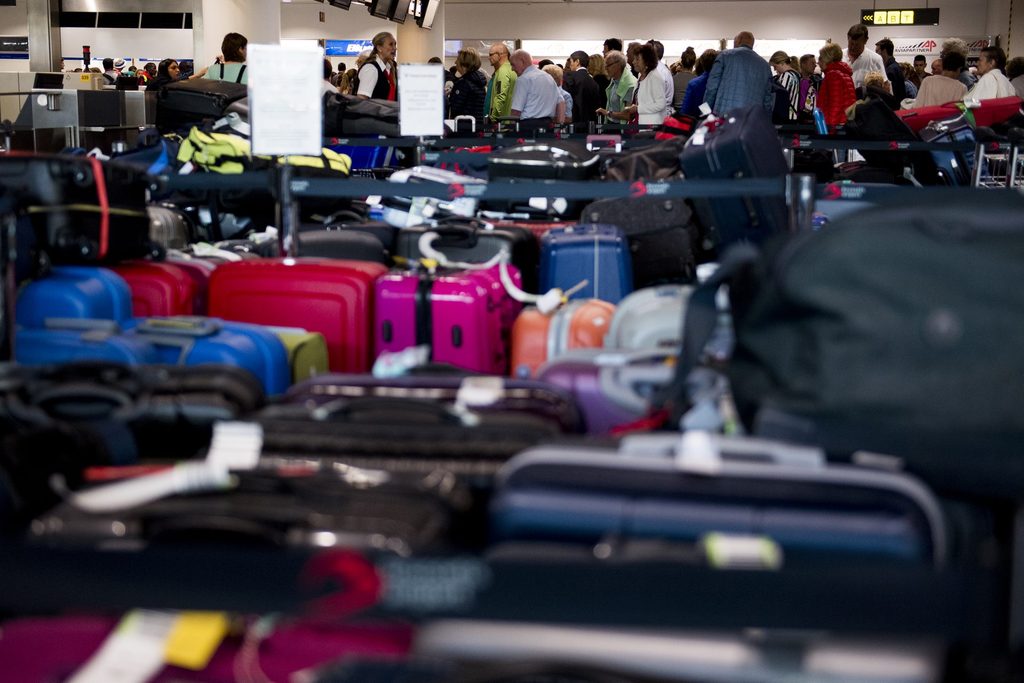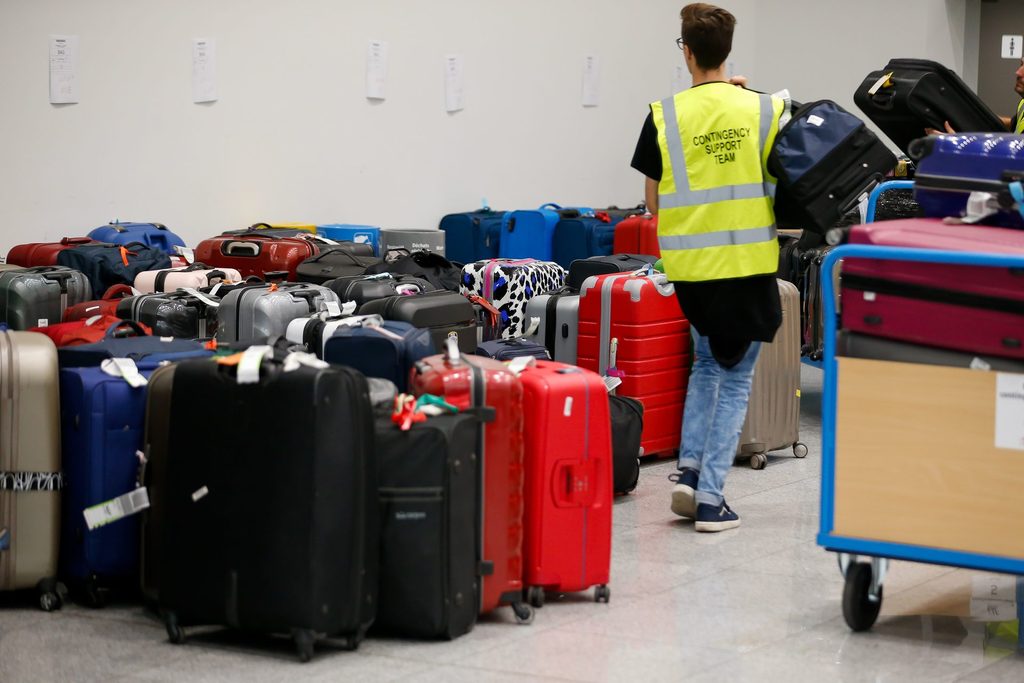As airlines worldwide lost or mishandled 26 million bags last year – the highest rate in a decade, as well as an "exponential" rise compared to the year before – a growing number of travellers are turning to luggage trackers to make sure their suitcases follow them to their destination.
Airports around the globe have generally not been successful in getting a handle on the post-pandemic travel chaos, with delayed and cancelled flights, strikes, record-long security lines and lost bags becoming the norm last year.
"When it comes to recovering a lost bag, one of the most useful travel gadgets on the market right now is electronic luggage trackers," Head of Marketing for Gego Tracker Yohanna Isis told The Brussels Times, adding that many travellers are turning to these trackers to guide their luggage through transit.
Of all travellers whose luggage was lost last year, 72% said they lost an irreplaceable item, a report by aviation IT provider SITA showed.
Tracking your bags across the globe
In response, travellers have been leaving a tracker – such as Apple AirTags, Tile Mate or Gego GPS – in their checked bag(s), allowing them to locate missing items through Bluetooth or GPS. "The trackers have become increasingly popular in recent years as airlines and airports are losing more luggage than ever before," Isis said.
While the airline industry has mostly recovered now, it was hit hard during the pandemic. Thousands of aviation workers from cabin crew to baggage handlers were laid off during the 2020 lockdowns and travel bans, creating a labour shortage. However, once borders began to open and people flocked to the airports to travel again, airports could not handle the increased demand.
"Many major airports experienced longer security lines, cancelled flights and rapidly changing itineraries," she said. "With all that chaos, thousands of bags fell through the cracks and are piling up at storage facilities at airports. Most of the time, these bags simply remain there."

Credit: Belga / Jasper Jacobs
When compared to 2021, the number of mishandled or lost bags almost doubled, jumping from 4.35 to 7.6 bags per 1,000 travellers. This also marked an increase from the pre-pandemic rate of 5.6 bags per 1,000 travellers in 2019.
Strikingly, nearly 1.25 million pieces of luggage per year are never reunited with their owners.
Travellers are often quick to point the finger at the airlines when their bag goes missing, but sometimes it is more the fault of airports: bags can fall off a trolley during transport or be put on the wrong plane. "So many things can go wrong in a complicated operation like running an airport, and some airports are worse than others."
Related News
- Brussels Airport baggage strike: 46 flights disrupted so far
- Strike by French air traffic controllers forces Ryanair to cancel 400 flights
- Strike to paralyse Stuttgart airport on Friday
Chicago O'Hare airport in the US lost the most bags out of any airport last year. Still, flying with certain airlines increases your chances of losing your luggage: American Airlines lost the most bags of any airline in 2022, losing around 850 bags per 100,000 travellers.
Isis also stressed that clearly identifying your luggage and ensuring that your bags are sturdy plays a major role in ensuring your suitcases make it to your destination.
"One major reason for lost property is when the bag gets damaged during transit. The suitcase can break open, and when that happens, airport workers often do not have time to pick everything up and piece the suitcase back together," she explained. "Most of the time, the luggage is then sent to the lost bag area and will most likely never return."
What to do when your luggage is lost?
Travellers who lose their bags should immediately notify their airline and keep their baggage claim check slip. It is also useful to take photos of your luggage in advance to show airport staff and to be aware of the bag's brand, size, colour and condition (in case it gets damaged along the way).
When notifying the airline, travellers should leave their contact information so they can be kept updated on the latest developments. Most airlines will deliver lost or delayed luggage to the passengers' homes once recovered.
In some cases, travel or home insurance also covers lost luggage. Making a claim this way can sometimes be more effective or efficient than through the airline.

